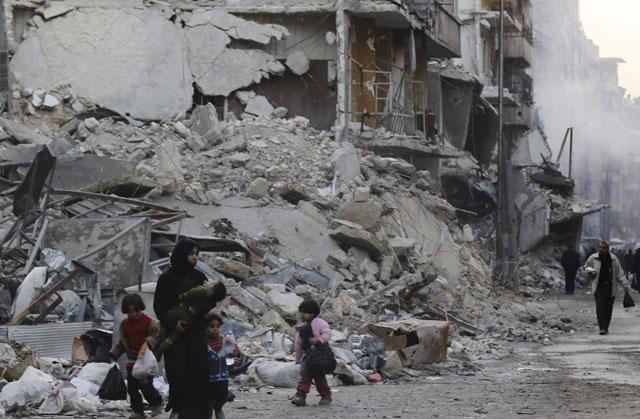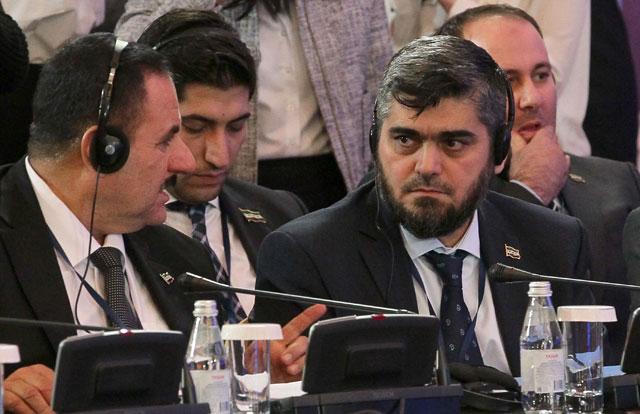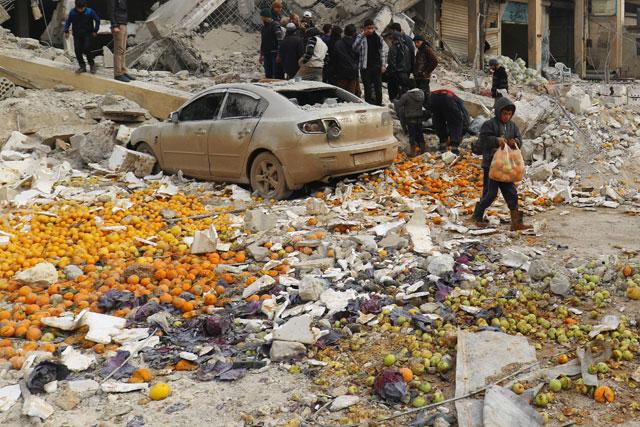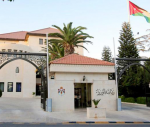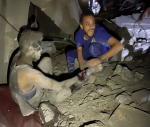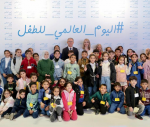You are here
Syria rebels vow to keep fighting if talks fail
By AFP - Jan 23,2017 - Last updated at Jan 23,2017
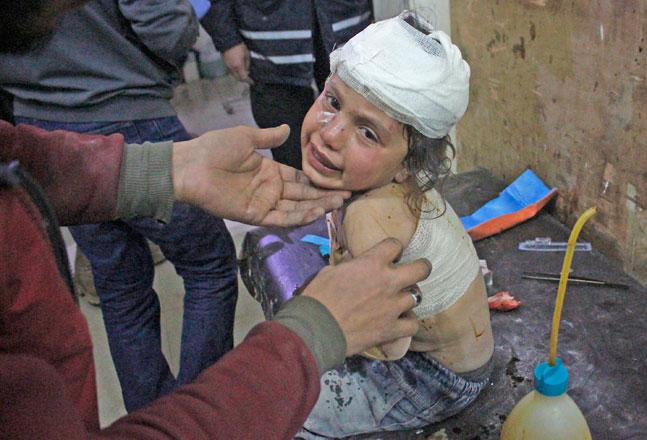
An injured child receives treatment at a military hospital after an air strike, which left 6 children dead and 8 civilians injured at a farm where Syrians sheltered in Idlib, northeast of Syria, on Sunday (Anadolu Agency photo)
ASTANA, Kazakhstan — Syrian rebels vowed Monday to keep fighting if peace negotiations with the government of President Bashar Al Assad fail, as talks between the two sides in Kazakhstan got off to a rocky start.
The meeting in Astana, backed by key players Russia, Turkey and Iran, had been billed as the first time armed rebel groups would negotiate directly with the Assad regime since the conflict erupted in 2011.
But the rebels backed out of the first round of direct talks because of the regime's continued bombardment and attacks on a flashpoint area near Damascus.
However, they took part in indirect talks with the government and held a three-way meeting with Russia, Turkey and the United Nations.
"If the negotiations succeed, then we are with the negotiations”, rebel spokesman Osama Abu Zeid told AFP. "If they don't succeed, unfortunately we'll have no choice but to continue fighting."
The rebels' announcement came as Russia's defence ministry said its warplanes had bombed the Daesh terror group in the area around Deir Ezzor in eastern Syria, where regime forces have been fighting the extremists.
A member of the rebel delegation told AFP that the group would agree to seeing Russia as a guarantor of the truce but not Iran, another Assad backer.
The negotiations in the Kazakh capital come amid a rapprochement between regime ally Russia and rebel backer Turkey, who together brokered the current truce in December after months of US disengagement in the conflict.
Several rounds of failed talks in Geneva saw political opposition figures take the lead in negotiating with the regime.
But in Astana, the 14-member opposition delegation is composed solely of rebels leading the armed uprising, with members of the political opposition serving as advisors.
The initiative has been widely welcomed, but the two sides arrived in Astana with apparently divergent ideas on their aim.
Chief rebel negotiator Mohammad Alloush said in his opening statement that the opposition was focused on bolstering the nationwide truce, while Assad has insisted rebels lay down their arms in exchange for an amnesty deal.
“We came here to reinforce the ceasefire as the first phase of this process,” Alloush said in comments broadcast online. “We will not proceed to the next phases until this actually happens on the ground.”
Damascus has also called for a “comprehensive” political solution to a conflict that has killed more than 310,000 and displaced more than half of Syria’s population.
The head of the regime delegation, Syria’s UN ambassador Bashar Al Jaafari, said in his opening comments carried by the country’s SANA state news agency that he hoped the talks “will reinforce the cessation of hostilities”.
He added the government was keen to separate the rebels from Daesh and former Al Qaeda affiliate Fateh Al Sham Front.
Delegation spokesman Abu Zeid said the rebels were concerned with “more than just a ceasefire”.
“The issue is putting monitoring, investigation and accountability mechanisms in place,” he told AFP. “We want these mechanisms so that this doesn’t play out over and over.”
Southern Front spokesman Issam Al Rayyes, whose faction is represented in the rebel delegation, dismissed the possibility of a political solution to the conflict without the truce being observed.
“There’s no way to implement a political solution or go for a transitional period without implementing a ceasefire,” he told reporters. “This is the reason we are here.”
Previous pushes for a long-term ceasefire have faltered, with both sides trading accusations over violations.
Syrian state media said the regime had met the Iranian delegation as well as UN Syria envoy Staffan de Mistura before Monday’s talks to discuss their positions.
In his opening statement, de Mistura said it encouraged the talks’ organisers “to create a mechanism to implement the consolidation and de-confliction ceasefire measures, and to see what else can be done to build confidence”.
“This is not a replacement for the Geneva process,” rebel negotiator Fares Buyush told AFP, referring to the UN-hosted political negotiations set to resume in the Swiss city next month.
Although Russia and Turkey back opposing sides, they have worked hand-in-hand in recent weeks to try to secure an end to the brutal war and forged a partnership likely to be tested in Astana.
Related Articles
ASTANA, Kazakhstan — Syria's government and rebel fighters will on Monday sit down at the negotiating table for the first time in nearly six
ASTANA, Kazakhstan — Syrian regime and rebel representatives failed Thursday to make any breakthroughs at talks in Kazakhstan, as key powerb
BEIRUT — Syrian rebel groups said Monday they will attend peace talks next week, in a boost to efforts by rivals Turkey and Russia to put an


